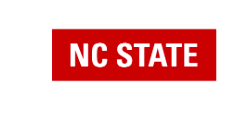Learning the Entire Pipeline: Analyzing and Improving Graduate Engineering Education through Communities of Practice
Recent policy documents for graduate STEM education note that engineering programs do not adequately help students develop abilities to work in collaborative and team settings, to communicate to diverse audiences, and to deal with diverse opinions, ideas, and backgrounds. Additionally, the emergence of new fields at the interface of two or more disciplines requires a workforce with the ability to work collaboratively with people from different disciplines. Moreover, most engineering problems in the field involve multiple heterogeneous teams working on subsystems that need to be integrated as a working system. Students need to learn how to work within and across teams – and disciplines. In this project we seek to improve graduate engineering education by studying students interactions and learning within and across collaborative groups, when integrating into professional engineering endeavors, and when engaged in interdisciplinary projects, in order to identify promising approaches, identify obstacles, and generate theory for the effective preparation for the workforce of graduate engineering students.
We are guided by the theoretical framework of communities of practice (CoP), which has a strong emphasis on collaboration, diverse groups and audiences, and the need to communicate across disciplinary and cultural backgrounds. The CoP framework is also providing mechanisms for the enculturation of novices into disciplinary groups, as well as for the dissemination of ideas across such groups. We have selected three courses from three different departments to foster and study this CoP approach. The selected classes afford CoP-guided studies of different grain sizes, using diverse concepts from the CoP framework, and in a variety of disciplines.
Through this approach that involves various settings and granularities, we are seeking to develop a broader view of CoPs in engineering that can build theory for this field and guide implementation across subfields of engineering education.
- Read the abstract

